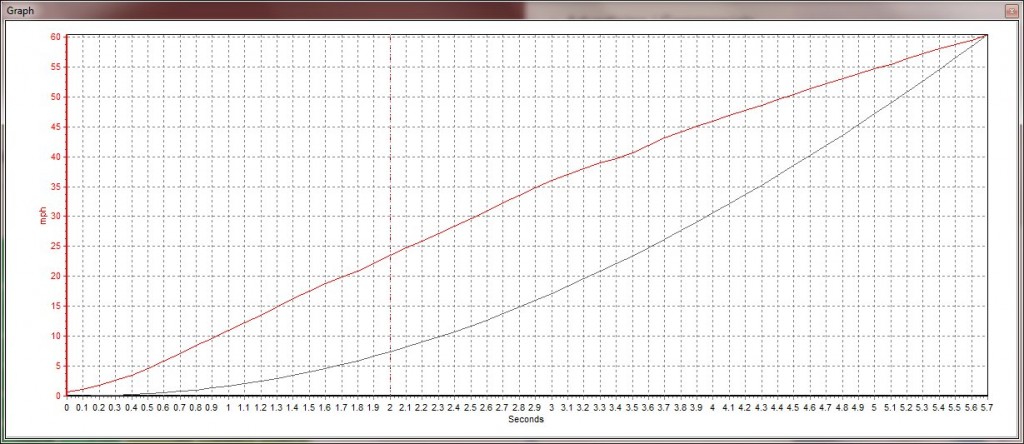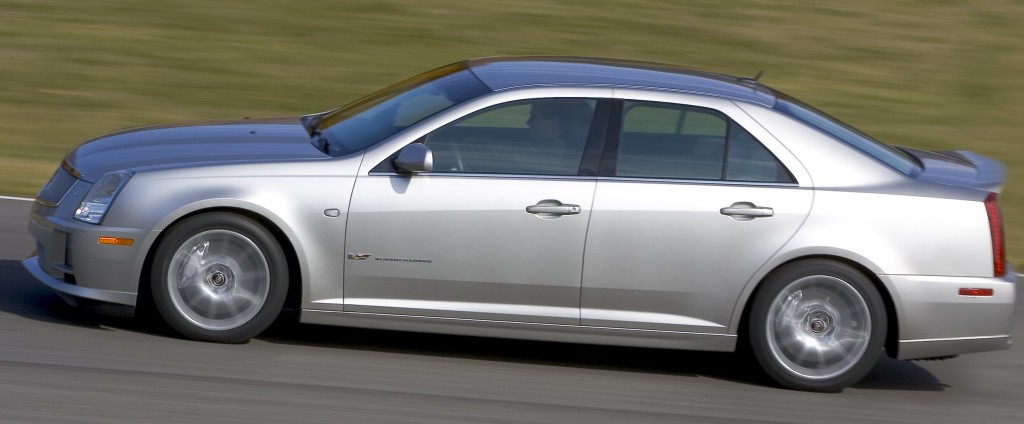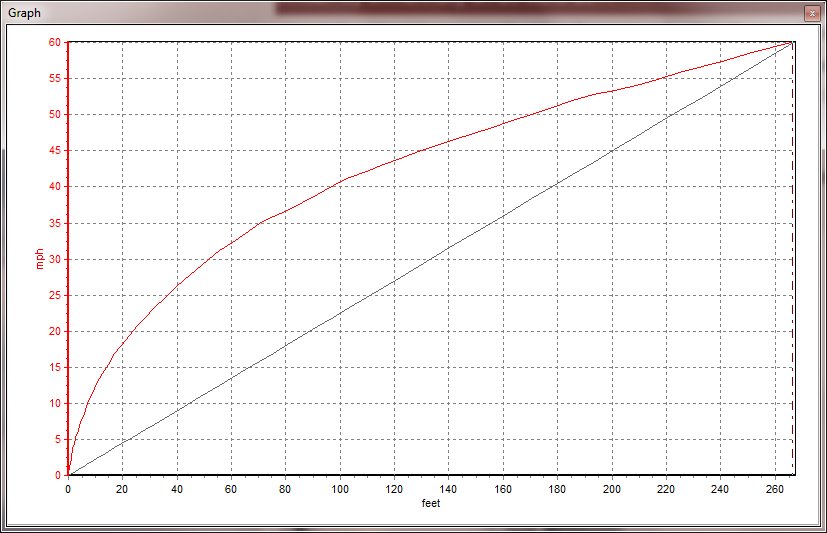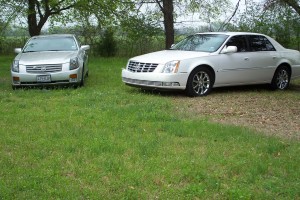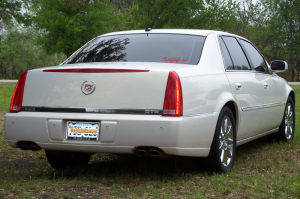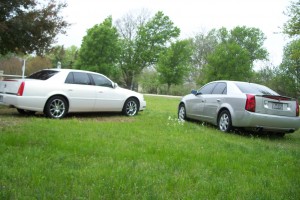100F out today here in Texas, but testing must go on. Mostly because inquiring minds want to know and my interest is piqued about how this could be simpler and yet any more subtle in execution.
And the table with comparison to last best run:
| Today’s Test | ||||||
| Rollout | Previous Test | |||||
| Speed (mph) | Time(s) | Dist(f) | 0.37 | Speed (mph) | Time(s) | Dist(f) |
| 10 | 0.93 | 6.33 | 0.56 | 10 | 0.71 | 7.13 |
| 20 | 1.71 | 23.73 | 1.34 | 20 | 1.45 | 23.53 |
| 30 | 2.53 | 53.59 | 2.16 | 30 | 2.23 | 51.94 |
| 40 | 3.43 | 100.4 | 3.06 | 40 | 3.09 | 96.6 |
| 50 | 4.45 | 168.07 | 4.08 | 50 | 4.21 | 170.2 |
| 60 | 5.66 | 265.64 | 5.29 | 60 | 5.39 | 265.8 |
Conditions: Weather: 95.6F baro 28.85 in Fuel: almost empty (car indicated 100F outside; 96F per the weather underground)
Today I wanted to try accelerating briskly until 20 mph or so then wide open throttle. My goal was to get to 20 mph as rapidly as possible without wheelspin, figuring that even with full throttle there would be little wheel spin after 20 mph. I was partially correct.
I also discovered that there is a cusp wherein the 6speed automatic will shift from 1 to 2 early in the low 20s if you are not at wide open throttle, which is bad for acceleration. Manually shifting the automatic is right out because the redline at 1st comes up too fast for the manual shift to be effective.
Good news is a slightly faster best time, at 5.29 sec 0-60 with rollout. Remember our goal is 4.9 sec 0-60 with rollout. Low on fuel so 84 lbs lighter this run, which can also cause this difference in 0-60 times vs the earlier test. The hotter temps act against acceleration, and 20F hotter is significant.
This simple method did improve my 1 foot acceleration time from 0.59 to 0.37 so there is that. Also my 60′ time from a dismal 2.8 to 2.66 sec. A reasonable 60′ time for street car on street tires is under 2.2 sec, so I am off in the first 60 ft and its me not the V.
I do think that this will be a matter of defining an exact technique to get the last few 0.1’s out however — brisk but not tire screeching acceleration up to 18-20 mph then full throttle before the transmission can decide to downshift to 2nd or similar.
In the real world it doesn’t matter much, but learning to drive the car can’t but help.
Intake update: the Spectre intakes are due from Streetsideauto.com in the next week or two, and then we’ll get before and after dyno tests run at True Street Motorsports in McKinney Texas per my Project Cadillac Tuning Plan

